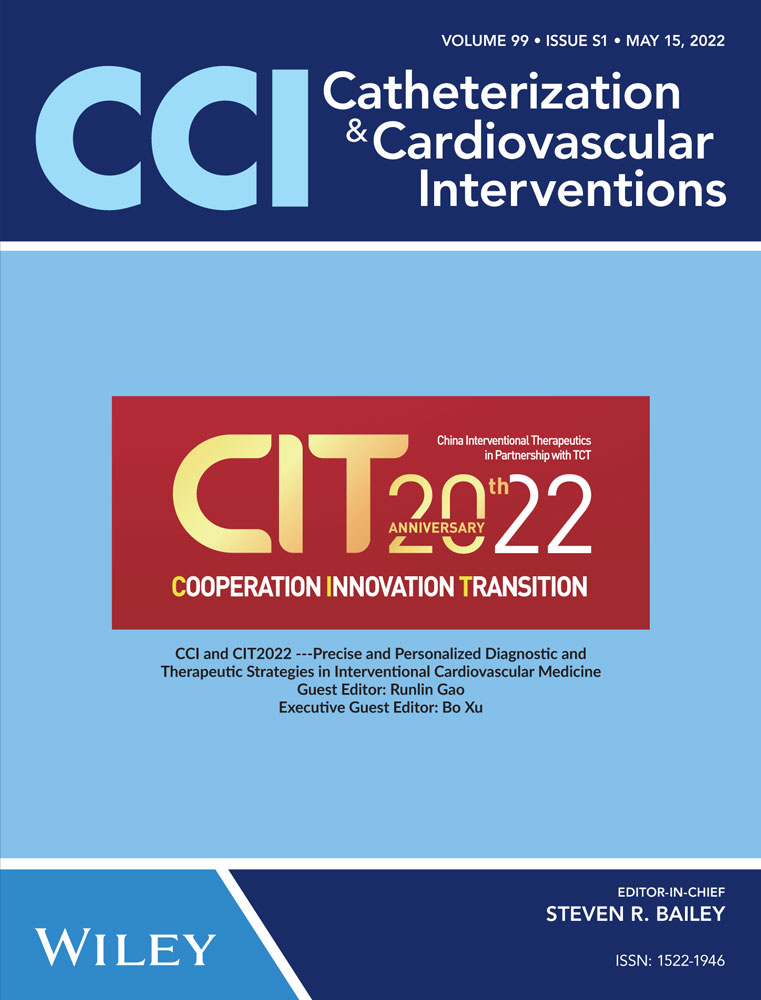Profile and outcomes of patients with mediastinal hematoma after cardiac catheterization: A retrospective analysis
Abstract
Objective
To provide a comprehensive introduction of mediastinal hematoma.
Background
Mediastinal hematoma is a rare complication that is usually not considered in the differential diagnosis of chest pain after cardiac catheterization.
Methods
From January 1, 2006, to December 31, 2013, at Fuwai Hospital, 126,265 patients underwent coronary angiography (CAG); 121,215 of them underwent CAG via the radial artery. Ultimately, 10 patients with mediastinal hematoma due to cardiac catheterization were included. Patients' clinical characteristics, diagnosis, treatment, and prognosis were retrospectively analyzed.
Results
The incidences of mediastinal hematoma in cardiac catheterization and transradial cardiac catheterization were 0.79‱ and 0.74‱, respectively. A super slide hydrophilic guidewire was used in all 10 patients with mediastinal hematoma. These patients felt chest pain and dyspnea during/after the procedure, and computed tomography (CT) was used to diagnose mediastinal hematoma. Among them, two patients had a neck hematoma. The post-procedural hemoglobin level decreased substantially in all patients. Antiplatelet therapy was discontinued for 8–20 days in three patients without stents implanted, and then only oral aspirin was prescribed. Aspirin was transiently discontinued for 2 days in one patient undergoing percutaneous coronary intervention. The others continued taking dual antiplatelet drugs. Two patients received blood transfusion. There was no case of stent thrombosis, and surgery was not indicated for any patient. No complication was observed after discharge during the 9.0 ± 2.5-year follow-up.
Conclusion
CT should be performed as early as possible in patients with suspected mediastinal hematoma. The prognosis of mediastinal hematoma is usually good with early diagnosis and suitable therapy.
CONFLICT OF INTERESTS
The authors declare that there are no conflict of interests.
Open Research
DATA AVAILABILITY STATEMENT
The data that support the findings of this study are available on request from the corresponding author. The data are not publicly available due to privacy or ethical restrictions.




